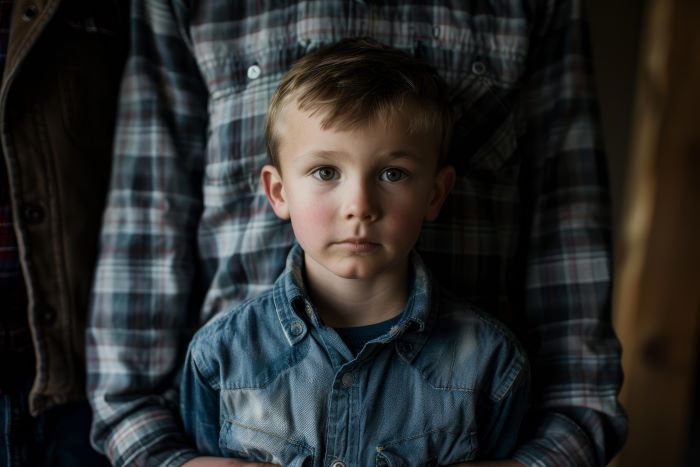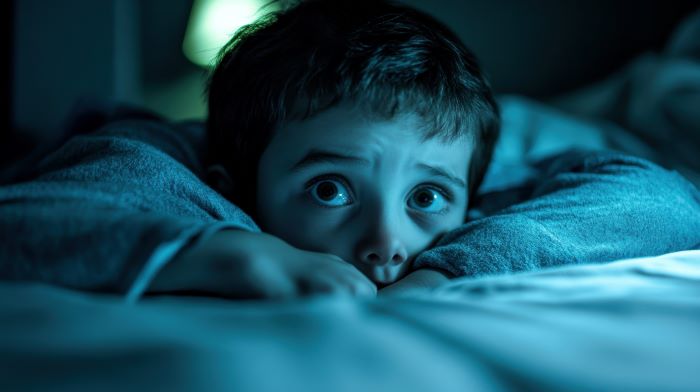Last Updated on February 24, 2025 by Mandy Gurney
How Can I Help My Child with Anxiety at Night?
Written by Mandy Gurney February 2025
If your child struggles to fall asleep because of anxious thoughts, you’re not alone. Anxiety and sleep are closely linked—when children feel worried, bedtime can quickly turn into a stressful experience for the whole family. Instead of looking forward to a calming and relaxing lead-up to sleep, it can become highly charged and stressful for everyone.
In this blog, I’ll explore how anxiety can disrupt children’s sleep patterns, uncover the underlying causes of bedtime anxiety and provide practical tips and strategies to help your child find calm and restful sleep.

Why Does Anxiety Stop Your Child from Sleeping?
If your child struggles to sleep because of anxiety, it’s not just in their head—there’s a real connection between worry and restless nights. Anxiety can turn bedtime into a stressful experience, making it harder for them to relax and fall asleep. Once this pattern starts, a tricky cycle can develop: the more they associate bedtime with feeling anxious, the harder it becomes to drift off, leading to overtiredness, low mood, and difficulty concentrating during the day.
So why does anxiety have such a big impact on sleep?
- Busy brains won’t switch off – When the lights go out and the distractions of the day fade, worries can suddenly feel much louder. Without anything to keep their mind busy, anxious thoughts can take over, making it difficult to wind down.
- Their body is on “high alert” – Anxiety activates the body’s stress response, releasing adrenaline and increasing heart rate, muscle tension, and alertness. Your child who was downstairs yawing only a few minutes ago, suddenly becomes restless, fidgety, or even wide awake once in bed.
- Fears feel bigger at night – Worries about school, friendships, or upcoming events can seem much scarier in the dark. For younger children, separation anxiety or fear of being alone may also make bedtime more challenging.
- Anxiety can cause physical symptoms – Some children experience stomach aches, headaches, or even a racing heart when they feel anxious, making it even harder to relax into sleep.
- Frequent wake-ups – Even if they do manage to fall asleep, anxious children often wake in the night and struggle to settle back down, prolonging the cycle of broken sleep.

The good news? There are plenty of ways to help your child feel calmer and more secure at bedtime. By understanding what’s behind their sleep struggles and introducing simple strategies to reduce anxiety, you can help them break free from this cycle and get the sleep they need.
In my series of blogs, I will explore:
-
What causes worries or anxiety at bedtime?
-
Relaxation techniques that can help children with bedtime anxiety
-
Is Your Child’s Sleep Struggle a Sign of Anxiety?
If your child’s sleep struggles are linked to anxiety, you’re not alone—many families face the same challenge. With the right support, your child can develop healthy sleep habits and feel more secure at night. We’ve helped hundreds of families navigate bedtime anxiety, and we’re here to help you too. Please get in touch to find out how we can support your child’s journey to better sleep.
0 Comments





